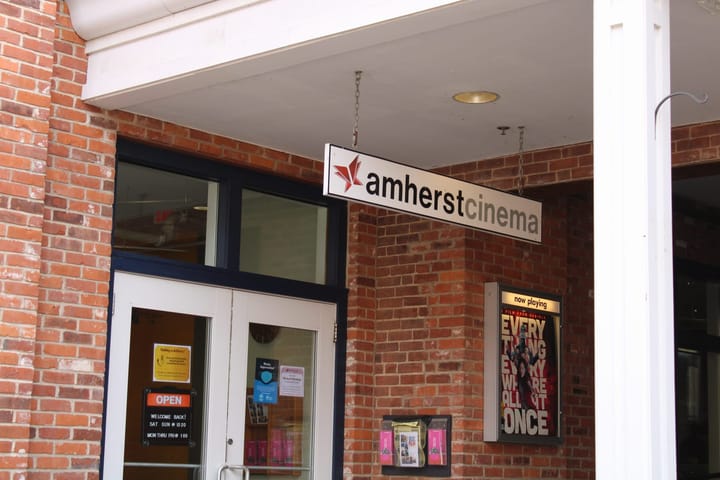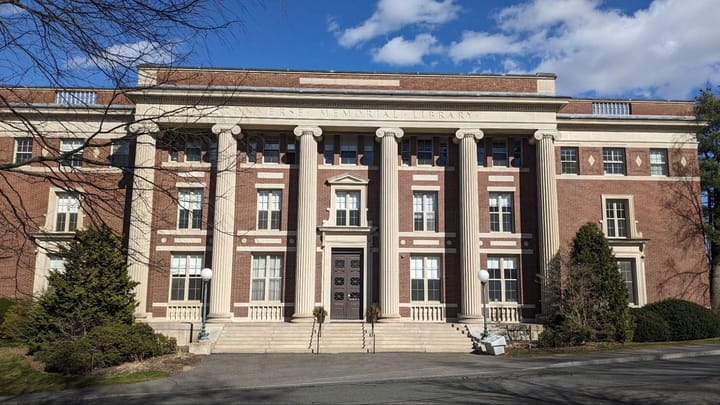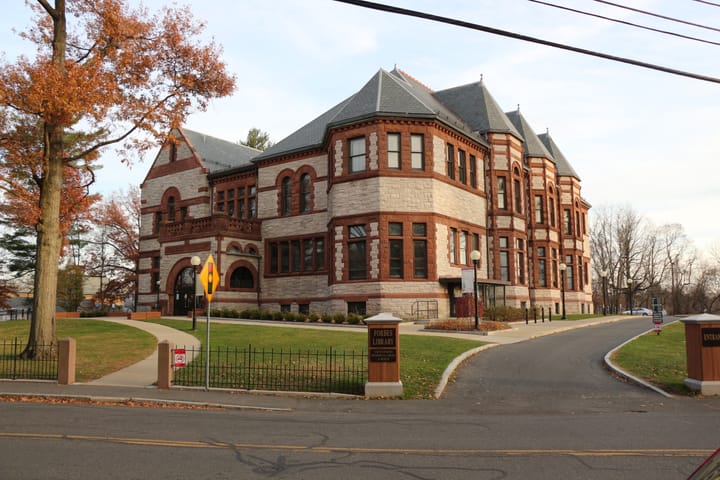After Decades of Activism, Faculty Approves AAPI Studies Major
The department’s core faculty will remain members of other departments, and their courses will be cross-listed in both AAPI studies and their home departments, which will include English, economics, psychology, and SWAGs.
Faculty approved a new major in Asian American and Pacific Islander (AAPI) Studies by a vote of 138-6 at their March 8 meeting.
It was a major victory after more than 50 years of student and faculty activism, making Amherst the first liberal arts college in the country with an AAPI studies major.
Professors also debriefed the Feb. 29 Board of Trustees meeting (notably without mention of the pro-Palestine protest that took place), discussed lower nationwide levels of alumni engagement with their alma maters, and read a memorial for late Professor of History and Sexuality, Women’s and Gender Studies Martha Saxton.
Ahead of the vote to approve the AAPI major program, Professor of American Studies and Education Studies Pawan Dhingra presented on the proposal, highlighting the work of the proposal’s faculty authors — Professors Sony Coráñez Bolton of English, Latinx and Latin American Studies, and Spanish, Edward Melillo of environmental studies and history, and Nozomi Saito of English — all of whom, in addition to Dhingra himself, will be core faculty of the program.
Dhingra also acknowledged the “generations of faculty and students who have been pushing and yearning for this day.” Students from the Asian and Pacific American Action Committee (APAAC) were in attendance to see the results of the vote.
In anticipation of faculty questions, Dhingra explained that AAPI studies is a decades-old field requiring its own program separate from both the Asian Languages & Civilizations and American Studies departments, since neither examines the lived experiences of immigrants and their descendants across the diaspora. Dhingra emphasized that AAPI studies is “not about teaching students about their identities,” but rather “uses its theories and content to interrogate the American experience and the role of the United States globally.”
The 2022 cluster hire of three AAPI studies professors is key to establishing the program, Dhingra said. Professors of AAPI studies will not be pulled away from their home departments, instead cross-listing their courses with AAPI studies, Dhingra said, responding to general concerns about fracturing the existing curriculum.
Faculty voted electronically to approve the major after students in attendance were asked to leave the meeting.
“Students are interested in being affirmed, and tying their personal experience with intellectual study,” said Coráñez Bolton in support of the major ahead of the vote. “They want to combine those in a meaningful and structurally supported way, like other students have in European Studies, Black Studies, and Latinx and Latin American Studies.”
In addition to the vote, President Michael Elliott fielded faculty questions and concerns about topics discussed in the Feb. 29 Board of Trustees quarterly meeting, including preliminary talks of a master plan for addressing insufficient academic spaces, sustainable budgetary growth, and concerns about the “campus climate.”
When asked about the Board’s discussions about how a national trend of decreased alumni engagement with their alma maters affects the college, Elliott cited a recent trend of “larger institutional mistrust in higher education,” and younger alumni becoming discouraged by their peers who are disengaged from their respective alma maters.
Elliott said that the issue lies not with the alumni who “get mad at the college and let me know,” but with those the college does not hear from, making it difficult to figure out the reason for decreased engagement.
A significant portion of the meeting was dedicated to Professor of History and American Studies Francis Couvares’ heartfelt memorial for late History and Sexualty, Women’s and Gender Studies (SWAGS) Professor Martha Saxton, who died in July 2023 after battling lung cancer. She taught at the college from 1996 until 2016. He cited her work as a biographer for actress Jayne Mansfield, author Louisa May Alcott, and Mary Washington, mother of President George Washington.
Discussing her impact at the college, Couvares referred to Saxton’s dedication to teaching about the lives of women of color, particularly enslaved and incarcerated women in 19th-century America. In the wake of student activism about sexual assault and rape culture on campus, Saxton co-taught a seminar called “Representing Equality,” whose students aided in publishing a handbook to help incoming students address gender inequality that results in sexual violence.
“[Martha] told stories capable of telling us something important about the world we, and especially women among us, live in,” Couvares read. Saxton had almost completed a biography of English essayist and historian Edward Gibbon, which will be published posthumously.
In a eulogy read by Couvares, a former student of Saxton’s wrote to her: “You were different. You seemed … above any intellectual, customary constraints. And without apology, you were about justice.”





Comments ()